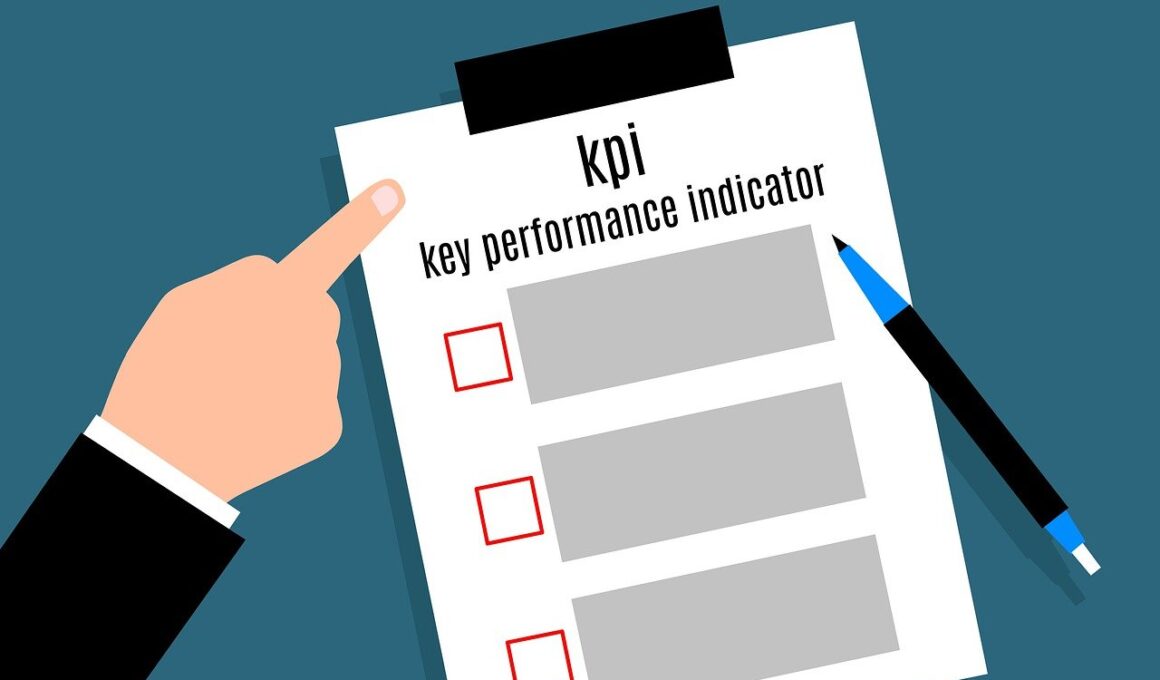Role of Cost Accounting in Strategic Performance Management
Strategic performance management focuses on aligning an organization’s resources with its objectives. Cost accounting is vital in this process, serving as a tool for assessing efficiency and productivity. By providing accurate cost data, cost accounting aids businesses in making informed financial decisions essential for strategic planning. This information guides organizations in reallocating resources effectively, determining pricing strategies, and optimizing operational efficiency. Moreover, it facilitates the identification of cost drivers that significantly influence the overall business performance. With precise cost data, managers gain visibility into profit margins across various products or services, allowing for more strategic decision-making. Furthermore, cost accounting enhances accountability within the organization by measuring performance outcomes against set financial targets. The integration of such a system fosters a culture of continuous improvement that ultimately drives organizational success. As businesses continually face competitive pressures, the importance of leveraging cost accounting to achieve strategic goals becomes increasingly evident. Thus, effective cost management practices are integral for organizations aiming to maintain a competitive edge and ensure long-term viability in their respective markets. This comprehension of cost structures is essential for informed strategic decisions.
Understanding Costs and Performance Metrics
To harness the full potential of cost accounting in performance management, organizations must understand various cost types. Fixed costs, variable costs, direct costs, and indirect costs must be clearly defined and tracked. Fixed costs are those that remain constant regardless of production levels, while variable costs fluctuate based on output. A clear distinction between these cost types allows for better budgeting and forecasting. Performance metrics, essential for measuring success, also rely heavily on this cost information. Organizations often use metrics like contribution margin, return on investment, and profitability indices to evaluate performance. These metrics provide insights into how effectively a business is utilizing resources compared to incurred costs. Moreover, cost accounting aids in the development of key performance indicators (KPIs) tailored to organizational outcomes. KPIs can track financial performance, operational efficiency, and overall effectiveness, providing a holistic view of management performance. With proper understanding and utilization of performance metrics, companies can drive strategic initiatives that lead to superior financial performance. This targeted approach ensures that stakeholders have the information they need to make strategic decisions that drive value and growth.
The role of cost accounting extends beyond mere financial tracking and reporting. It involves using data analytics to derive insights that drive executive decisions. Trend analysis, variance analysis, and forecasting are vital tools in a cost accountant’s arsenal. These methods help identify discrepancies between planned and actual performance, guiding necessary adjustments. Implementing effective cost accounting practices ensures that variances are not only reported but also analyzed to discover their root causes. This proactive approach enables organizations to address inefficiencies and adapt strategies quickly accordingly. Additionally, engaging in benchmarking processes can further enhance performance measurement. By comparing costs and performance indicators against industry standards, companies can identify gaps in performance and operational best practices. This interplay between cost accounting and performance management ultimately drives innovation. Speaking to industry leaders, one can observe how organizations prioritize cost structures, aligning them with strategic goals. In essence, it is essential for organizations to stay agile and continuously adjust to changes in both cost structures and market dynamics. The integration of cost accounting processes with strategic management can empower organizations towards greater efficiency and profitability.
Challenges in Cost Accounting Practices
While the benefits are clear, several challenges accompany effective cost accounting and performance measurement. One significant challenge is the allocation of indirect costs to specific projects or departments. These costs, which cannot be directly attributed to a specific product or service, often complicate accurate performance assessment. Furthermore, the rapidly changing business environment complicates forecasting accuracy. Organizations must adapt cost accounting practices to reflect changes in market conditions, which often requires real-time data analysis. In addition to data management challenges, businesses face difficulties in maintaining integrity and accuracy within their cost structures. Inaccurate and outdated cost data can lead to misguided decisions impacting overall performance. Another issue arises when employees resist adopting cost accounting measures due to perceived complexity or lack of training. Organizations must prioritize staff education to foster a culture that values precise performance measurement. Implementation of technology and automated systems can also mitigate these challenges by streamlining processes and enhancing data accuracy. Addressing these challenges proactively will allow organizations to leverage cost accounting effectively within their strategic performance management initiatives.
The relevance of cost accounting becomes particularly pronounced in today’s increasingly competitive business landscape. Cost accounting provides a basis upon which companies can evaluate performance critically and strategically. With access to detailed financial data, organizations can engage in comprehensive analyses that highlight not only strengths but potential areas for improvement. This capability fosters a culture of performance-driven strategies that can adapt to both market needs and operational challenges. Another important aspect is the role of forecasting in performance management. By utilizing historical cost data, companies can make informed predictions regarding future financial conditions. This foresight is invaluable in allowing organizations to set achievable strategic goals and adjust budgets accordingly. Additionally, cost accounting supports long-term financial planning, ensuring that firms remain financially viable over time. It aids in identifying capital requirements and potential funding gaps. Companies can engage stakeholders through transparent reporting, further enhancing trust and commitment. The significance of cost control measures in reinforcing organizational agility cannot be overstated. Thus, aligning cost accounting with performance management is essential to navigate today’s ever-evolving business environment successfully.
Future Trends in Cost Accounting
The future of cost accounting lies in embracing technological advancements and continuous learning. One current trend is the increased use of data analytics and artificial intelligence to process vast amounts of financial data effectively. These tools allow for improved accuracy in cost assessments and empower management with actionable insights. Additionally, companies are beginning to utilize cloud technologies, leading to enhanced collaboration and real-time access to financial information. Such advancements enable decision-makers to respond swiftly to emerging challenges, ensuring strategic objectives are met. Furthermore, the shift towards sustainability has introduced a new layer of complexity to cost accounting. Organizations are increasingly required to factor in environmental impact costs along with traditional financial metrics. This shift highlights the need for comprehensive frameworks that encapsulate both financial and non-financial performance indicators. As businesses evolve, cost accounting will continue to adapt, integrating flexible methodologies that support strategic initiatives. Such progressive approaches will drive better resource allocation and operational efficiencies, ultimately enhancing overall productivity. Incorporating these practices paves the way for future-ready organizations prepared to navigate the complexities of modern markets.
In summary, the role of cost accounting in strategic performance management cannot be overstated. It serves as a foundational element that guides organizations in making informed decisions about resource allocation and operational efficiency. In today’s fast-paced environment, incorporating precise cost measurement with strategic planning is crucial for lasting success. Companies that prioritize effective cost management not only enhance profitability but also promote a culture of accountability and improvement. As organizations continue to face numerous challenges, leveraging cost accounting as a strategic tool becomes more important than ever. Continuous adaptation of processes and methods is essential in response to evolving market dynamics. Through a commitment to fostering an environment of transparency, organizations can effectively measure their performance against established goals. Cost accounting, therefore, stands as a critical function in helping organizations achieve their long-term strategy and objectives. The continuous interplay between accurate cost data and strategic performance management fosters innovation and resilience in rapidly changing contexts. The pursuit of excellence through effective cost management strategies propels organizations towards sustained growth and achievement.
Conclusion
Ultimately, the strategic role of cost accounting transcends traditional financial reporting. It integrates seamlessly into overall performance measurement, helping organizations remain agile and competitive. Enhancing decision-making with comprehensive cost data encourages businesses to adopt innovative solutions that drive success. As the corporate landscape evolves, the importance of accurate and timely cost accounting practices will only increase. Embracing this evolution will enable organizations to continue achieving their strategic objectives while maintaining operational excellence. The ongoing integration of cost accounting with performance management is a powerful means to stay ahead in dynamic markets. A focus on continuous improvement and value creation ensures organizations can adapt their strategies effectively. This adaptability is crucial for long-term success in an increasingly complex business environment. Companies that recognize and harness the full potential of cost accounting will find themselves well-positioned as leaders within their respective industries. Therefore, continued investment in cost accounting techniques and resources is paramount. Cost accounting should not be viewed merely as a financial function but as a strategic partner in performance management.


